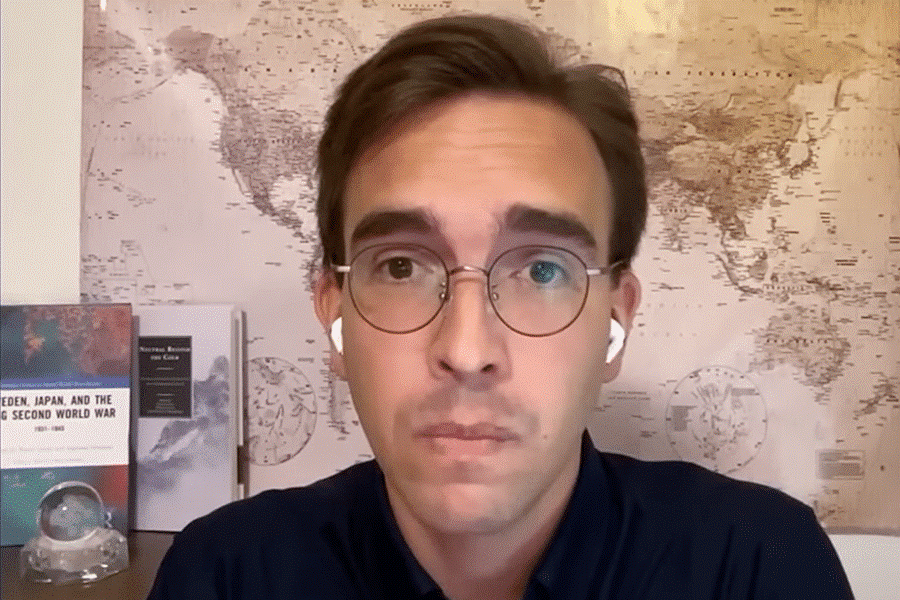Evarist Bartolo, Malta’s former Minister of European and Foreign Affairs, shines a rare light on how heavy-handed and top-down EU politics really is. In Brussels, some are more equal than others.
Apr 30, 2025
It doesn’t happen often that a former European top official speaks candidly about the political processes of the EU and interactions with the USA. Evarist Bartolo, neutral Malta’s former minister of European and Foreign Affairs, is an exception not only in this regard but also in relation to his realistic assessments of world affairs. In a recent interview on Neutrality Studies he criticises openly the authoritarian tendencies inside Brussels that have been leading the continent toward open confrontation with Russia.
Bullying Behind Closed Doors
Bartolo’s first insight cuts to the heart of EU politics: the illusion of equality among member states. “The EU is like an old-fashioned train,” he says, “first class, second class, and third class. First class, you have France and Germany. Second class, maybe Spain or Italy. And the rest of us travel in third class.” Decisions, especially in times of crisis, are not made through meaningful discussion, but handed down from the engine room. For smaller countries like Malta, even formal mechanisms such as the veto are under constant pressure. “It would be a tragedy,” Bartolo warns, “if we lose our veto. We would become a colony again” this time not of London, but of Brussels.
This hierarchical culture extends beyond internal EU dynamics. Bartolo describes his time on the EU Foreign Affairs Council as “a catwalk in a fashion parade,” where ministers speak for three minutes and real dialogue is impossible. When he raised concerns about the global implications of sanctions against Russia or questioned the strategic neglect of Africa, he was met with silence. “There’s no discussion. If you say something that’s not liked, you’re simply ignored.”
The American Shadow Over Europe
Perhaps more revealing is how U.S. influence distorts EU foreign policy. Bartolo recounts instances of direct pressure from the U.S. embassy in Malta warning him not to meet with Russian or Chinese officials. “As if I was going to visit a leper colony,” he recalls. When he met Sergei Lavrov, the Russian foreign minister called him “a brave minister” simply for acknowledging the Soviet Union’s role in defeating Hitler—“a basic historical fact,” Bartolo notes, that many of his EU colleagues would never dare to say aloud.
The pressure was not limited to personal visits. Bartolo references a U.S. State Department document, publicly available, in which the number one goal of the U.S. mission in Malta is listed as: to align Malta with Western interests. “That means going directly against our Constitution,” Bartolo says. Malta’s neutrality is enshrined in its highest law. “Can you imagine,” he adds, “if our embassy in Washington had as its goal to realign the U.S. with Russian or Chinese interests?”
The Collapse of Diplomacy
What alarms Bartolo most is the collapse of diplomacy itself. He recalls how even the symbolic act of attending forums such as the Antalya Diplomacy Forum was frowned upon by fellow EU ministers. “You’re not even allowed to talk [anymore]” he laments. This bunker mentality, he believes, is a product of fear, ideology, and careerism—where younger diplomats think less about statecraft and more about their future in a think tank or EU commission post.
This collapse, he argues, is turning Europe into a “warfare state” under the illusion that militarization will restore economic and geopolitical strength. “We’re moving away from welfare states to warfare states,” he says, “thinking we can build tanks instead of cars and solve our problems that way. But this is a dangerous illusion.”
A Different Path Forward
Despite his grim diagnosis, Bartolo does not advocate disengagement. Quite the opposite. He calls for Europe to rediscover diplomacy as a two-way street. Neutral countries, he believes, could play a key role in rebuilding bridges. He urges a shift toward a model where states “listen before they speak,” and where foreign policy is shaped by mutual respect, not bloc loyalty.
For Bartolo, neutrality is not appeasement—it is wisdom. It is the only path for small countries like Malta to maintain sovereignty and for Europe as a whole to avoid becoming a pawn in someone else’s game. “We are people,” he concludes. “Not pawns.”




